A natural solution for busy days and restless nights.
Feeling overwhelmed by everyday stress? Rediscover peace and balance with CALMOZEN Relax & Sleep, a combination of carefully selected herbs and natural marine magnesium.
Valerian, Lemongrass, St. John’s wort, Passionflower and Griffonia combine harmoniously with Magnesium to help you relax and achieve a restful and refreshing sleep.
Understanding Stress: Causes, Symptoms and Approaches
Stress is part of our lives, but how we react to and manage stress can make a difference in our quality of life. With the right approach and resources, we can navigate life’s challenges in a healthy and balanced way.
Stress and sleep are closely linked, and effective stress management can play a crucial role in improving sleep quality and vice versa. By recognizing this interconnection, we can take steps to improve our well-being.
Stress is our body’s natural reaction to change or threat. It can be caused by a variety of factors, whether it’s problems at work, family problems, major life changes, or traumatic events.
Stress Symptoms
Stress can manifest itself both mental and physical.
Psychological symptoms of stress:
- Feelings of restlessness or agitation;
- Difficulty concentrating;
- Memory problems;
- Increased irritability;
- Feelings of being overwhelmed or overwhelmed;
- Excessive worry or obsessive thoughts.
Physical symptoms of stress:
- Headaches;
- Difficulty sleeping or insomnia;
- Pain or rapid heart rate;
- Muscle pain or muscle tension;
- Digestive problems, such as diarrhea or constipation;
- Low energy or chronic fatigue.
Complications of stress
If stress is not addressed early, it can have long-term consequences and lead to a number of other symptoms or conditions that are more difficult to manage, including:
- Depression or anxiety;
- Lowered immunity (making us more susceptible to infections);
- Heart problems;
- High blood pressure;
- Sleep disorders;
- Weight problems (weight loss or gain).
Who is prone to higher levels of stress?
Stress is a universal reaction to challenges or stressful situations, so anyone can be affected by stress at some point in their life.
However, there are certain groups of people and situations that are more prone to stress:
- Personality and temperament: People with a Type A personality (competitive, achievement-oriented, often impatient or even aggressive) or those with perfectionist tendencies tend to experience higher levels of stress compared to others.
- Prior life experiences: People who have gone through traumatic experiences in childhood or later in life (abuse, neglect, loss of loved ones) may be more sensitive to stress.
- Professions with high responsibility or danger: Police officers, firefighters, medical personnel, the military and others who work in high-risk professions are more exposed to stress.
- People with multiple responsibilities: Those who juggle work responsibilities, childcare and caring for elderly parents, for example, they may be under increased stress.
- Major life events: Major life changes, such as divorce, job loss, death of a loved one, or diagnosis of a serious illness, can lead to increased levels of stress.
- Pre-existing mental health conditions: People with conditions such as anxiety or depression may be more susceptible to stress or may perceive ordinary situations as more stressful than a person without these conditions.
- Lifestyle: Excessive use of alcohol, caffeine, or other substances, lack of sleep, or an unhealthy diet can amplify the stress response.
- Factors and socio-economic: people facing low incomes, unemployment or financial instability can be subject to constant and overwhelming stress.
- Acute stress situations: accidents, natural disasters or crisis situations can lead to acute stress.
It is important to emphasize that each person reacts differently to stress, and what is stressful for one person may be neutral or even stimulating for another.
Also, the ability to manage stress varies, with some people developing effective coping techniques, while others may need additional support.
Stress at work
Stress in the context of demanding work, whether it is physical or psychological demands (organizational stress), is a central theme in the field of occupational health. Understanding the connection between work demands and stress can help us maintain our balance, health, and productivity.
Physical Demand and Stress:
Physically demanding work often involves repetitive strain, heavy lifting, uncomfortable positions, or working in extreme conditions.
The stress associated with these tasks can result from:
- Muscular fatigue: muscle pain, cramps, or injuries caused by repetitive movements or irregular positions.
- Exhaustion: when the body is subjected to intense physical exertion without sufficient time for rest and recovery.
Mental strain and stress:
Mental strain can come from heavy responsibilities, time pressure, making critical decisions, or managing conflict.
This type of organizational stress can manifest itself through:
- Mental fatigue: difficulty concentrating, decreased creativity and efficiency.
- Burnout: emotional exhaustion, cynicism and a decrease in professional achievements.
- Psychosomatic symptoms: headaches, gastrointestinal disorders or sleep disorders.
Stress management
The first step in stress management is recognizing it. It is essential to identify the source of stress and understand how it manifests itself in our lives.
Once identified, we can directly address the cause or look for methods to adapt to the situation.
How to reduce stress
- Relaxation techniques: Practice relaxation techniques, such as meditation, deep breathing, or yoga, can help release tension and calm the mind.
- Exercise: Regular physical activity, even a short walk, can have positive effects on reducing stress.
- Time for yourself: Make time for hobbies or activities that you enjoy and make you feel good.
- Balanced diet: Eat healthy foods and avoid excessive consumption of coffee, alcohol, or sugar.
- Rest: Make sure you get enough sleep and that your rest is quality.
- Avoid sources of stress: If possible, try to limit or eliminate the main sources of stress in your life.
- Get help: If you feel overwhelmed, don’t hesitate to seek support from a mental health professional.
Addressing stress at work:
It is crucial to have strategies for managing organizational stress.
Some recommendations include:
- Regular breaks: Taking even short breaks to relax and de-stress can make a significant difference.
- Ergonomics: Adjusting office equipment and furniture to reduce physical strain.
- Developing time management skills: Organizing tasks and prioritizing effectively can reduce organizational stress associated with high workloads or deadlines.
- Support and resources: Having access to resources, such as stress counseling or employee support programs, can be essential.
Stress and its impact on sleep:
Stress and sleep have a bidirectional relationship: stress can affect the quality and duration of sleep, and lack of sleep can increase the feeling of stress. Understanding this dynamic is essential to maintaining our mental and physical state in balance.
When we are stressed:
- Levels of adrenaline and cortisol, the stress hormone, increasein stressful situations, which makes us alert and react quickly. Under conditions of prolonged stress, these hormones can affect the circadian rhythm and prevent sleep.
- Repetitive thoughts (rumination) related to stressful events can prevent relaxation and induce sleep.
- Rapid heartbeat, rapid breathing, and muscle tension can make it difficult to fall asleep.
Lack of sleep and its impact on stress:
- Lower stress tolerance: Lack of sleep reduces our ability to handle stressful situations, making us more sensitive to pressure.
- Mood swings: Fatigue caused by lack of sleep can lead to irritability, anxiety, and even depression.
- Decreased cognitive function: Concentration, decision-making, and memory can be affected by lack of sleep.
How to address stress for better sleep:
- Regular sleep routines: Going to bed and waking up at the same time every day, even on weekends, can stabilize your circadian rhythm.
- Sleep techniques Relaxation: Practicing techniques such as meditation, deep breathing, and yoga can help you relax before bed.
- Sleep-friendly environment: A dark, cool, quiet room free of electronic distractions contributes to quality sleep.
- Avoid caffeine and alcohol: These can affect sleep quality and exacerbate stress.
In conclusion, whether we are talking about physical or mental demands, identifying stress and its consequences is the first step in maintaining our health and well-being at work.
It is also essential to have the right tools and resources to effectively manage these challenges.
Nature welcomes you with calm and balance
Many plants have been used throughout history as natural treatments for stress and fatigue.
The use of plants to combat stress and improve sleep is based on the principles of phytotherapy, a branch of traditional medicine that uses plant extracts for their therapeutic benefits:
- Valeriana (Valeriana officinalis): Known for its sedative properties, it is often used as a supplement to help induce sleep.
- Melissa officinalis (Melissa officinalis): A plant with calming properties, it can reduce anxiety and stress.
- St. John’s Wort (Hypericum perforatum): Known for its antidepressant effects, St. John’s Wort can help improve stress.
- Passion flower (Passiflora incarnata): Used to treat insomnia and anxiety, it has a calming effect on the nervous system.
- Griffonia simplicifolia is a plant native to West Africa and is mainly known for its 5-HTP (5-hydroxytryptophan) content. 5-HTP is a precursor to serotonin, a neurotransmitter that plays a crucial role in regulating mood, appetite and sleep.
- Magnesium is an essential mineral for the human body and is involved in over 300 enzymatic reactions. When it comes to stress, magnesium plays a significant role in how our body responds and adapts.
Benefits
Calming and sedative properties
- Helps relax the body and mind;
- Relieves states of agitation or excitability and provides a general feeling of peace and tranquility;
- Contributes to establishing emotional balance;
- Can counteract the effects of stimulants or stress.
Reduces stress and anxiety
- Promotes a calm and controlled response to stimuli and stressful situations;
- Promotes a balanced attitude and the body’s adaptation to stressors;
- Reduces states of agitation or nervous excitabilityto;
- Provides a sense of calm and security, reduces feelings of worry;
- Improves mood, promotes feelings of joy and satisfaction;
- Combats lethargy or apathy;
- Contributes to a positive outlook on life;
- Can reduce physical and emotional symptoms of stress, such as palpitations or obsessive thoughts;
- Helps prevent nervous system overload;
- Ensures chemical balance in the brain;
- Increases serotonin levels and regulates cortisol production;
- Plays a role in modulating mood, behavior and functions cognitive;
- Regulates the transmission of signals between nerve cells;
- Reduces dependence on anxiolytic drugs;
- Reduces the risk of stress-related conditions, such as hypertension or obesity;
- Regulates appetite, sleep and body temperature;
- Can alleviate symptoms related to panic or anxiety attacks;
- Plays a role in cognitive functions and memory.
Helps you fall asleep
- Helps with sleep disorders, such as frequent awakenings;
- Facilitates the transition to sleep and can shorten the time it takes to fall asleep;
- Contributes to a deeper and more restful sleep;
- Contributes to uninterrupted sleep, reduces insomnia episodes;
- Promotes rest and physical and mental recovery during sleep;
- Helps restore a normal, long-term sleep cycle.
Antidepressant properties
- Counters feelings of sadness or apathy;
- Stimulates positive feelings and optimism;
- Reduces hunger or cravings (compulsive eating);
- May contribute to weight loss and appetite control;
- Reduces excessive food consumption during times of stress or anxiety.
Relieves premenstrual symptoms
- Reduces mood swings, irritability, and sensitivity associated with PMS;
- Relieves physical symptoms, such as cramps or breast pain;
- Promotes a more balanced approach to menstrual cycle;
- Contributes to muscle relaxation.
Physical stress, muscle tension
- Reduces tension in the muscles of the neck, back and shoulders;
- Helps prevent muscle cramps and spasms;
- Promotes recovery after physical exertion and achieving restful sleep.
Contributes to cardiovascular health
- Maintains a stable heart rate and healthy circulation;
- Reduces the risk of stress-related heart disease;
- Helps regulate blood pressure and reduces the risk of hypertension arterial.
Composition
Active ingredients/vegetable capsule (745 mg):
| Simag®55 Marine Magnesium providing Magnesium 82.5 mg | 150mg |
|---|---|
| Passiflora (Passiflora incarnata) extract 4:1 from aerial parts | 100mg |
| St. John’s wort (Hypericum perforatum) 4:1 extract from aerial parts | 100mg |
| Valerian (Valeriana Officinalis) root extract 4:1 | 100mg |
| Roinita (Melissa Officinalis) leaf extract 4:1 | 100mg |
| Griffonia (Griffonia simplicifolia) seed powder | 75 mg |
Does NOT contain: synthetic substances, dyes, artificial flavors, preservatives, sugar, sodium, gluten/wheat, crustaceans/fish, eggs, peanuts/nuts, lactose.
Administration
1 vegetable capsule per day. For a restful sleep, 2 capsules, 30 minutes before bedtime.
Precautions
The product is intended for adults only. It may induce drowsiness, its consumption may affect the ability to drive or use machinery.
What it can be associated with
• Lavender Essential Oil (Lavandula angustifolia): Lavender essential oil is often used in aromatherapy for relaxation. A little lavender essential oil on your pillow or a lavender tea can help relax and promote sleep.
• Vitamin D3 4000 IU (cholecalciferol) is one of the two main forms of vitamin D and is essential for bone health, immune function, calcium absorption and many other processes in the body. Recently, research has begun to evaluate the possible link between vitamin D3 levels and stress or mental health. Vitamin D receptors are located in many parts of the brain. Low vitamin D levels have been associated with certain mental health conditions, such as depression and anxiety. Some studies suggest that vitamin D3 may influence the release of cortisol, a stress hormone. However, the exact mechanism and its impact on stress are not fully understood.
• Myo-inositol 750 mg – effective in Premenstrual Syndrome, may have sedative and calming effects, may support hormonal balance and insulin function.
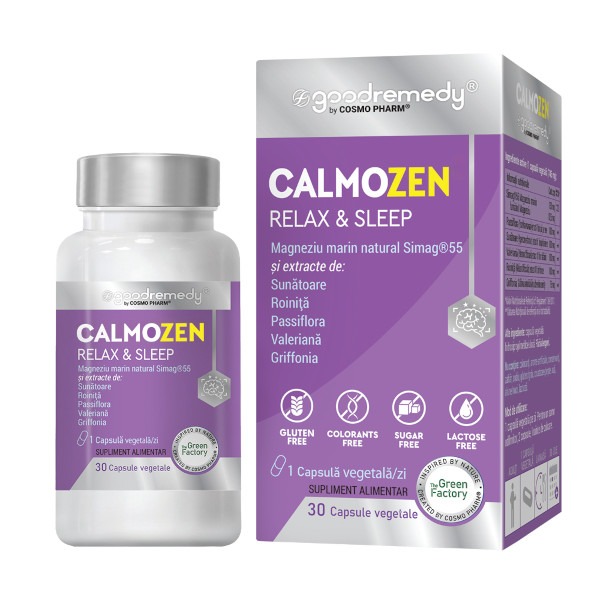
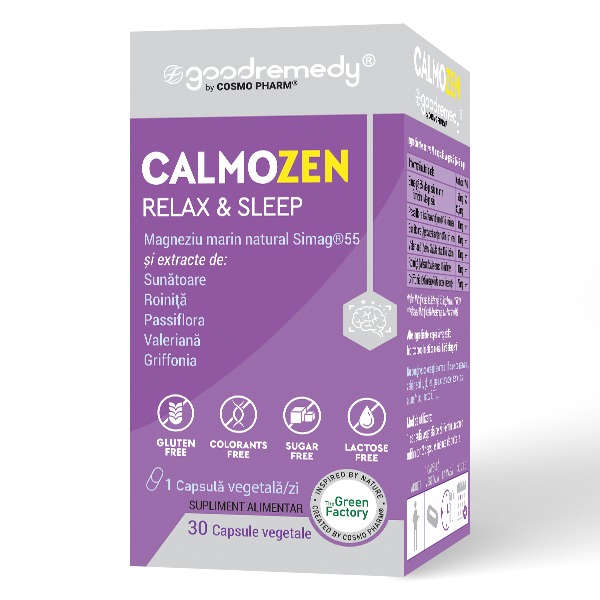
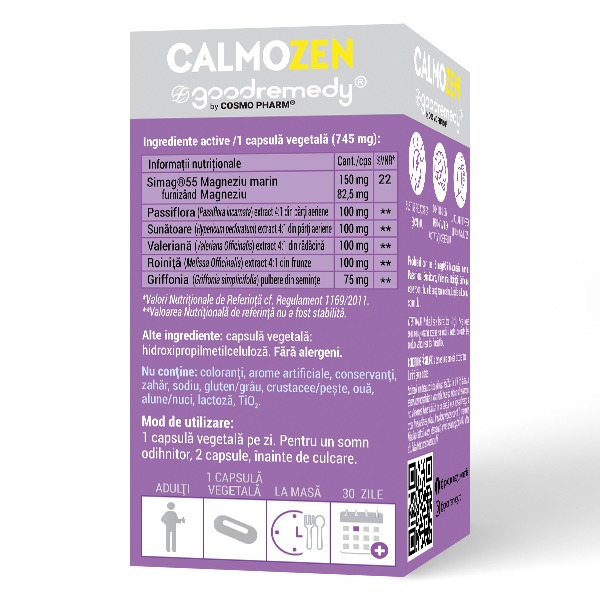
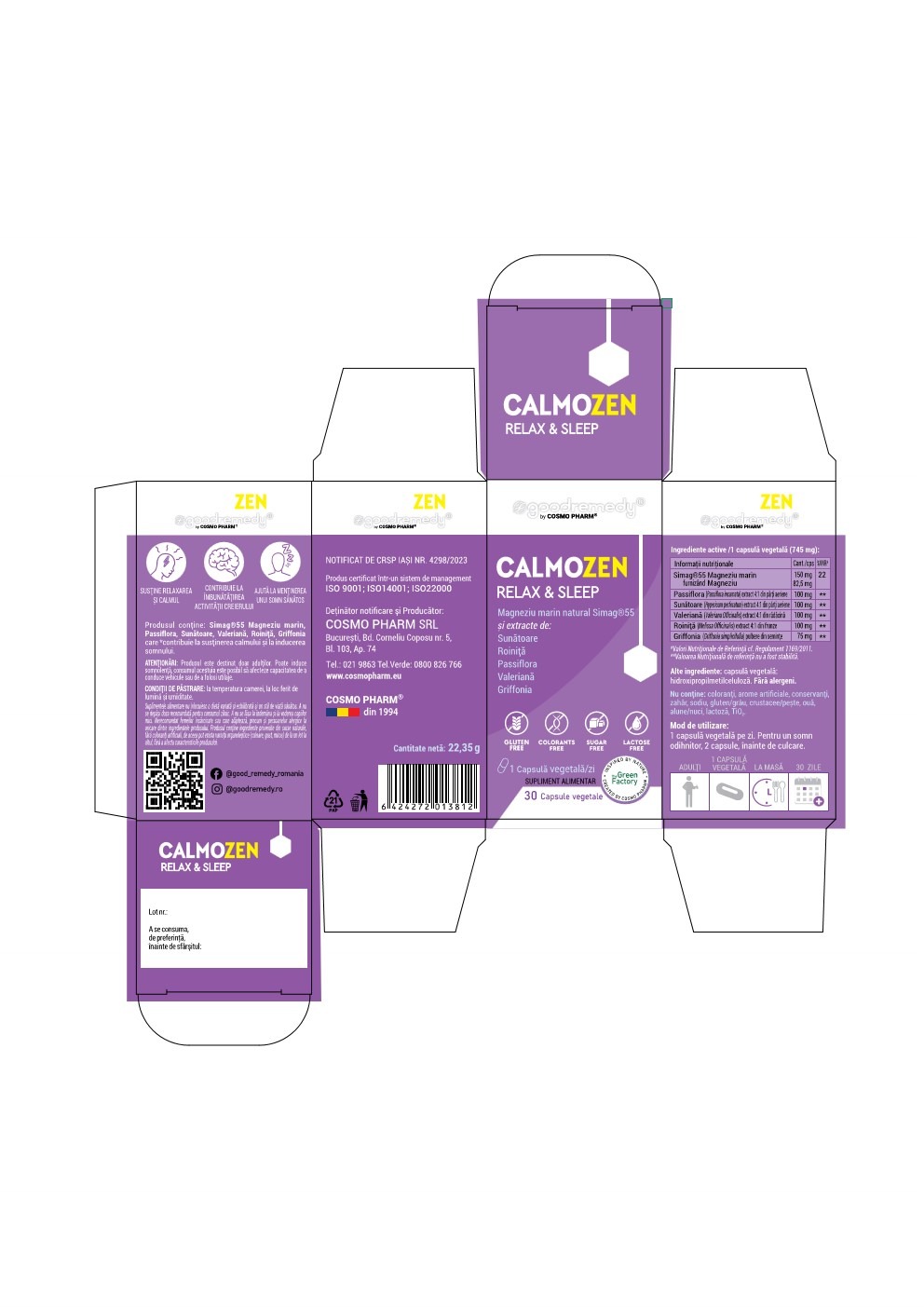
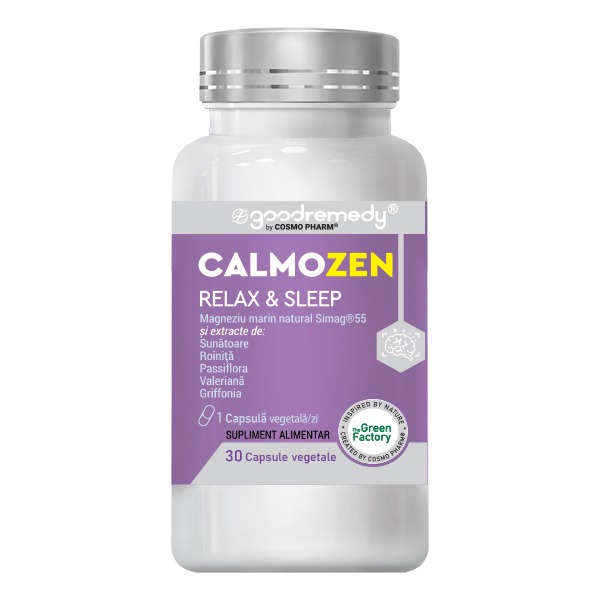
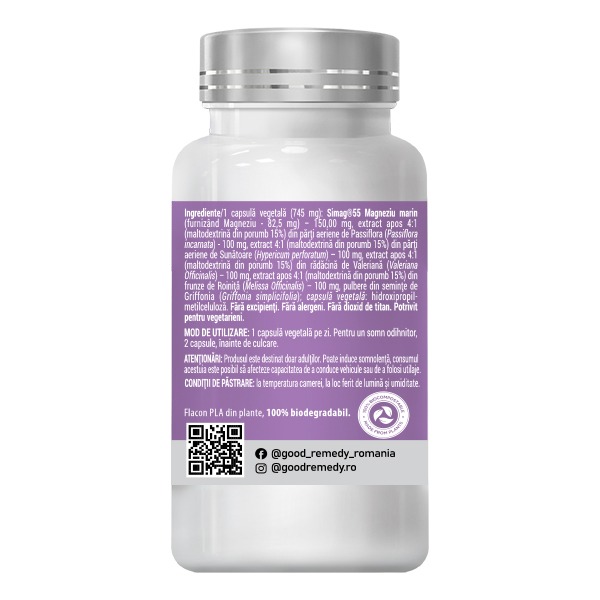
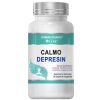

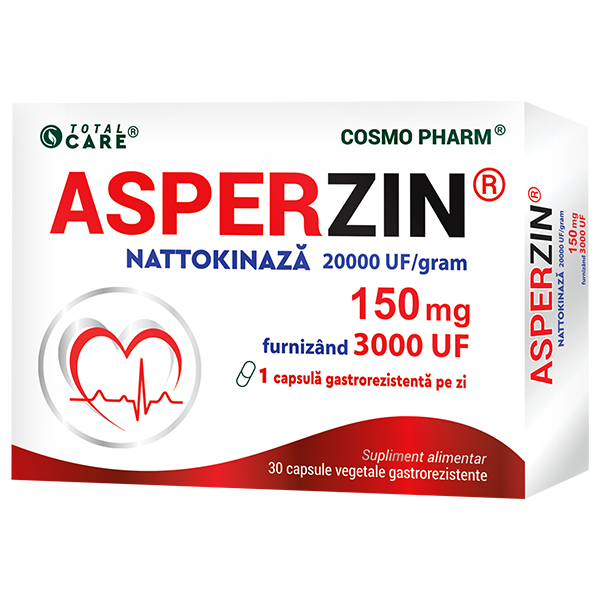

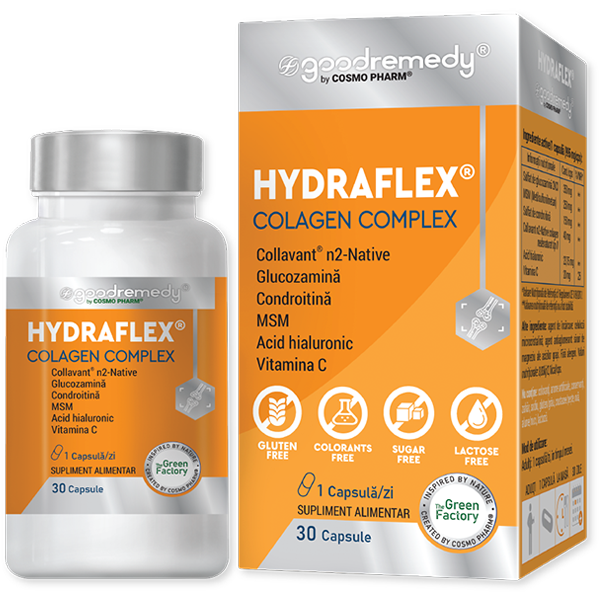
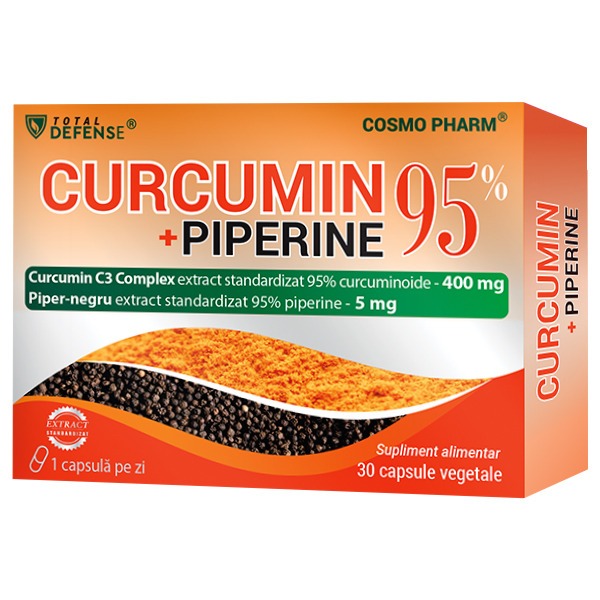
Reviews
There are no reviews yet.